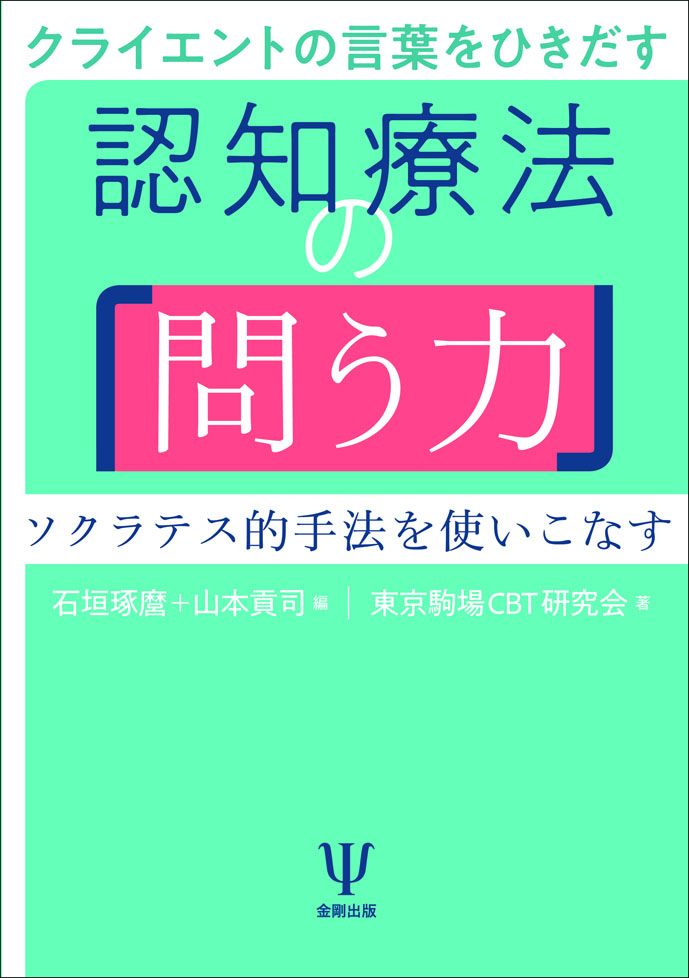
Title
Client no kotoba o hikidasu ninchi ryōhō no “tou chikara” (Effective Questioning in Cognitive Therapy that Encourages the Client to Speak - Making Full Use of the Socratic Method)
Size
224 pages, A5 format
Language
Japanese
Released
June 01, 2019
ISBN
9784772417013
Published by
Kongo-shuppan
Book Info
See Book Availability at Library
Japanese Page
This book is made up of two parts. The first explains the Socratic method in specific detail and the second introduces the Suitability for Short-Term Cognitive Therapy Scale (SSCR). The Socratic method and SSCR have emerged and developed quite separately of each other, but they share a critical similarity and that is that they both address the issue of the effective questioning that is necessary for cognitive therapy.
All psychotherapy progresses through therapeutic communication between the client and the therapist. This communication includes non-verbal elements such as facial expressions and posture, of course, but this book’s central theme is the element of language. Verbal communication naturally means that the therapist must listen carefully to what the client is saying, but it also requires effective questioning. In fact, effective questioning is foremost of all the skills required of the therapist. The first section of this book discusses the significance of effective questioning within the context of cognitive therapy with reference to the Socratic method.
SSCR was developed in the United States in the late 1980s as a tool for identifying clients who can complete cognitive therapy in a short period of time, that is, whose problems can be resolved in a short period of time. Cognitive therapy has proven effective for a variety of subjects, but that is a statistical finding and does not mean it is effective for all clients or for resolving all types of psychological issues in a short period of time. SSCR provides guidelines on the specific characteristics of clients for whom short-term cognitive therapy is useful and the kind of questioning that is effective in identifying such clients. The authors believe that introducing SSCR into Japan is meaningful for the future of cognitive therapy education and training in Japan.
It should be noted that this book is more than just a translation of scales of measurement and research from overseas sources. Within the book are passages in which colleagues of the authors, mid-career clinicians with a wealth of experience in cognitive therapy, explain why they believe the Socratic method and SSCR are important in cognitive therapy and describe their own implementation of methods for fostering effective questioning skills. This book reflects the process of development undergone by each of the cognitive therapists who are featured and thus serves as a “paper medium” of instruction by their seniors in the field for novice cognitive therapists.
This book is premised on the therapist posing questions to the client, but it should also prove useful for clients or therapists posing questions to themselves. The Socratic method, in particular, provides lines of query that can help to clarify one’s own issues, foster balanced, non-judgmental thinking, and provide deeper insights into oneself. It is the authors’ hope that this book will prove useful both as an introductory text for all fields of psychotherapy—not just cognitive therapy—and as a self-help guide.
(Written by ISHIGAKI Takuma, Professor, Graduate School of Arts and Sciences / 2020)



 Find a book
Find a book

